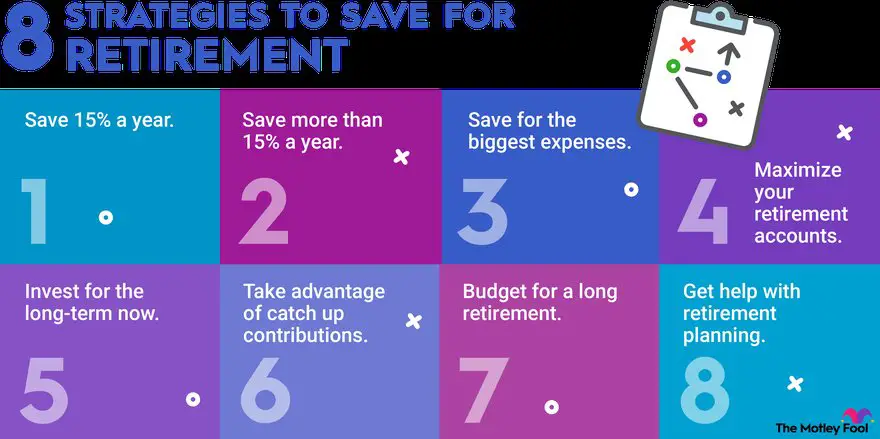Struggling to manage your finances while pursuing your graduate degree? Don’t worry, we’ve got you covered! In this article, we will provide you with practical tips and strategies on how to effectively manage your finances during graduate school. From budgeting wisely to finding additional sources of income, we’ll explore the various ways you can navigate this phase of your academic journey without breaking the bank. So, if you’re ready to take charge of your financial situation and make the most out of your graduate school experience, keep reading for valuable insights on how to manage finances during graduate school.
How to Manage Finances During Graduate School
Graduate school is a time of intellectual growth and personal development, but it can also be financially challenging. As a student pursuing advanced education, it is crucial to manage your finances effectively to ensure a stable financial future. In this article, we will discuss various strategies and tips to help you navigate the financial aspects of graduate school. From creating a budget to finding additional sources of income, we have you covered.
Create a Realistic Budget
One of the first steps to managing your finances during graduate school is to create a realistic budget. A budget will allow you to track your income and expenses, enabling you to make informed financial decisions. Here are some tips to help you create an effective budget:
- Calculate your income: Start by determining your available income. This includes stipends, scholarships, grants, part-time job earnings, or any other sources of income. Be sure to consider the frequency and consistency of these payments.
- Analyze your expenses: Track your expenses over a few months to gain insight into your spending habits. Categorize them into essentials (rent, tuition, groceries) and non-essentials (entertainment, dining out). Identify areas where you can potentially cut back.
- Set financial goals: Determine your short-term and long-term financial goals. Whether it’s paying off student loans or saving for emergencies, having clear goals will motivate you to stick to your budget.
- Allocate funds: Allocate percentages of your income to different expense categories. Aim to spend no more than 30% on housing, 15% on transportation, 10% on groceries, and so on.
- Monitor and adjust: Regularly monitor your budget and make necessary adjustments based on changes in income or expenses. This will help you stay on track and identify areas where you can optimize your spending.
Take Advantage of Student Discounts
Being a graduate student comes with its perks, including various student discounts that can help you save money. Many businesses and organizations offer exclusive deals to students, so it’s essential to take advantage of these opportunities. Here are some common areas where you can benefit from student discounts:
- Transportation: Many public transportation systems offer discounted fares for students. Check with your local transportation authority or inquire at your university’s transportation office.
- Software and technology: Companies like Apple, Microsoft, and Adobe often provide discounted software and technology products to students. Explore these options to save money on essential tools for your studies.
- Entertainment: Museums, theaters, cinemas, and other entertainment venues frequently offer discounted admission prices for students. Always carry your student ID and inquire about available discounts.
- Memberships: Various membership programs, such as Amazon Prime Student or Spotify Premium for Students, offer exclusive discounts on products and services. Look for opportunities to save money on your regular subscriptions.
- Insurance: Some insurance providers offer discounted rates for students. Whether it’s health, auto, or renter’s insurance, research different providers to find the best student discounts.
Minimize Textbook Expenses
Textbooks can be a significant expense for graduate students, but there are ways to minimize these costs. Consider the following strategies to save money on textbooks:
- Buy used or rent: Instead of purchasing brand new textbooks, explore options to buy used copies or rent them for the duration of the semester. Online platforms like Amazon, Chegg, and textbook-specific websites can help you find affordable options.
- Utilize the library: Check if your university’s library has the required textbooks available for borrowing. While you may not be able to keep them for the entire semester, you can still utilize them for studying or making photocopies of relevant sections.
- Join book exchange programs: Many universities have book exchange programs where students can buy and sell textbooks directly to one another. Take advantage of these programs to save money and potentially earn some cash by selling your own books.
- Explore e-books and digital resources: In the digital age, many textbooks are available in e-book format or through online platforms. These options are often more affordable than physical copies and can be accessed on multiple devices.
- Ask your professors: Reach out to your professors and inquire if older editions of textbooks are acceptable. Older editions are usually cheaper and contain similar content with minor differences.
Consider Additional Sources of Income
Managing finances during graduate school can be easier if you have additional sources of income. While your studies may be your primary focus, exploring part-time job opportunities or other income streams can provide financial stability. Here are some ideas to consider:
- Teaching or research assistantships: Many graduate programs offer teaching or research assistant positions. These positions not only provide a stipend but also valuable experience in your field of study.
- Tutoring: If you excel in a particular subject, consider offering tutoring services to undergraduate students. This can be done on-campus or online, allowing for flexible scheduling.
- Freelancing: Utilize your skills and expertise by freelancing in your spare time. Platforms like Upwork, Freelancer, and Fiverr connect freelancers with clients seeking various services.
- Part-time jobs: Look for part-time job opportunities on or near your campus. Many restaurants, retail stores, or administrative offices hire students for flexible shifts.
- Paid internships: Explore paid internship opportunities related to your field of study. Not only will you gain practical experience, but you will also earn income while pursuing your degree.
Manage Debt and Student Loans
Dealing with debt and student loans can be a stressful aspect of managing finances during graduate school. It is essential to understand the terms of your loans and develop a repayment plan. Follow these tips to effectively manage your debt:
- Stay informed: Educate yourself about the terms and conditions of your loans, including interest rates, repayment plans, and any available loan forgiveness programs. Stay in touch with your loan servicer to ensure you have the most up-to-date information.
- Make interest payments: If possible, consider making interest payments on your loans while in school. This helps prevent interest from capitalizing and accumulating, reducing the overall amount you will owe upon graduation.
- Create a repayment strategy: Develop a repayment plan that aligns with your financial goals. Whether it’s the standard ten-year plan or an income-driven repayment plan, choose an option that works best for your financial situation.
- Explore loan forgiveness programs: Depending on your field of study and career path, you may qualify for loan forgiveness programs. Research available programs to see if you meet the eligibility criteria and take advantage of these opportunities.
- Seek financial counseling: If you are struggling with managing your student loans, seek financial counseling services provided by your university or professional organizations. They can provide valuable guidance and help you navigate your repayment options.
Save for Emergencies and the Future
Lastly, it’s crucial to save for emergencies and your future, even while in graduate school. Building a financial safety net and planning for the long term will provide you with peace of mind. Consider the following steps to save for emergencies and invest in your future:
- Emergency fund: Aim to build an emergency fund that covers at least three to six months’ worth of living expenses. Set aside a small portion of your income each month until you reach your target.
- Automatic savings: Make saving a habit by setting up automatic transfers from your checking account to a savings account. This ensures consistent savings without requiring a conscious effort.
- Retirement planning: If possible, start contributing to a retirement account, such as an employer-sponsored 401(k) or an individual IRA. Even small monthly contributions can grow significantly over time due to compounding interest.
- Invest wisely: If you have extra funds available, consider investing in low-cost index funds or other diversified investment options. Seek advice from a financial advisor to ensure your investments align with your goals and risk tolerance.
- Stay frugal: Adopting a frugal mindset can help you save money in various aspects of your life. Reduce unnecessary expenses, find affordable alternatives, and prioritize your long-term financial well-being.
Managing your finances during graduate school requires discipline, planning, and proactive decision-making. By creating a budget, seeking student discounts, minimizing textbook expenses, exploring additional income opportunities, managing your debt, and saving for emergencies and the future, you can achieve a secure financial foundation. Remember to keep your goals in mind and make informed financial choices to thrive both academically and financially during this important phase of your life.
5 Financial Tips for Grad Students: How to save more money and set up your future in Graduate School
Frequently Asked Questions
Frequently Asked Questions (FAQs)
How can I manage my finances during graduate school?
Managing finances during graduate school can be challenging, but with careful planning and budgeting, it is possible to stay on top of your financial situation. Here are some tips to help you manage your finances during this time:
1. How should I create a budget as a graduate student?
Creating a budget as a graduate student is essential for managing your finances. Start by tracking your income and expenses, including tuition fees, housing, utilities, food, transportation, and other miscellaneous expenses. Allocate a certain amount for each category, prioritize your needs, and adjust your spending accordingly.
2. Are there any financial aid options available for graduate students?
Yes, there are various financial aid options available for graduate students. You can explore scholarships, grants, assistantships, and fellowships offered by your university or external organizations. Additionally, you can consider applying for student loans, but make sure to evaluate the terms and interest rates carefully before borrowing.
3. How can I save money on textbooks and course materials?
To save money on textbooks and course materials, consider buying used or renting them instead of purchasing new ones. Explore online platforms, local bookstores, or student forums where you might find affordable options. You can also reach out to seniors or professors to borrow or photocopy relevant materials whenever possible.
4. What are some ways to reduce housing expenses as a graduate student?
As a graduate student, you can reduce housing expenses by considering options like sharing accommodation with roommates or exploring on-campus housing if available. Look for affordable neighborhoods near your university or consider living farther from the campus where rent might be relatively cheaper.
5. How can I cut down on food expenses while pursuing my graduate studies?
To cut down on food expenses, you can start by cooking your meals at home rather than eating out frequently. Plan your meals in advance, make a shopping list, and buy groceries in bulk to save money. Consider using coupons or shopping during sales to get discounts on essential food items.
6. Should I consider part-time jobs to support my finances during graduate school?
Taking up a part-time job can be a great option to support your finances during graduate school. Look for opportunities that align with your schedule and allow you to balance work and studies effectively. However, make sure not to compromise your academic performance and only take on as much as you can handle without overwhelming yourself.
7. Are there any additional sources of income that I can explore?
Apart from part-time jobs, you can explore other sources of income such as freelancing, tutoring, or offering your skills and services to others. Utilize your expertise and interests to find potential opportunities that can help boost your income while still allowing you to focus on your studies.
8. Is it important to have an emergency fund as a graduate student?
Yes, having an emergency fund is crucial as a graduate student. Unforeseen expenses or emergencies can occur, and having a financial cushion can provide peace of mind. Aim to set aside a certain portion of your income each month into a separate savings account specifically designated for emergencies.
Final Thoughts
Managing finances during graduate school can be a challenge, but with careful planning and budgeting, it is possible to navigate this period successfully. First and foremost, creating a budget is essential. By tracking income and expenses, students can gain a clear understanding of their financial situation. Prioritizing needs over wants and making thoughtful spending decisions can help stretch limited resources. Additionally, exploring financial aid, scholarships, and part-time job opportunities can provide additional support. Finally, seeking out free or low-cost resources, such as textbooks and online tools, can help minimize expenses. By implementing these strategies, students can effectively manage their finances during graduate school.



